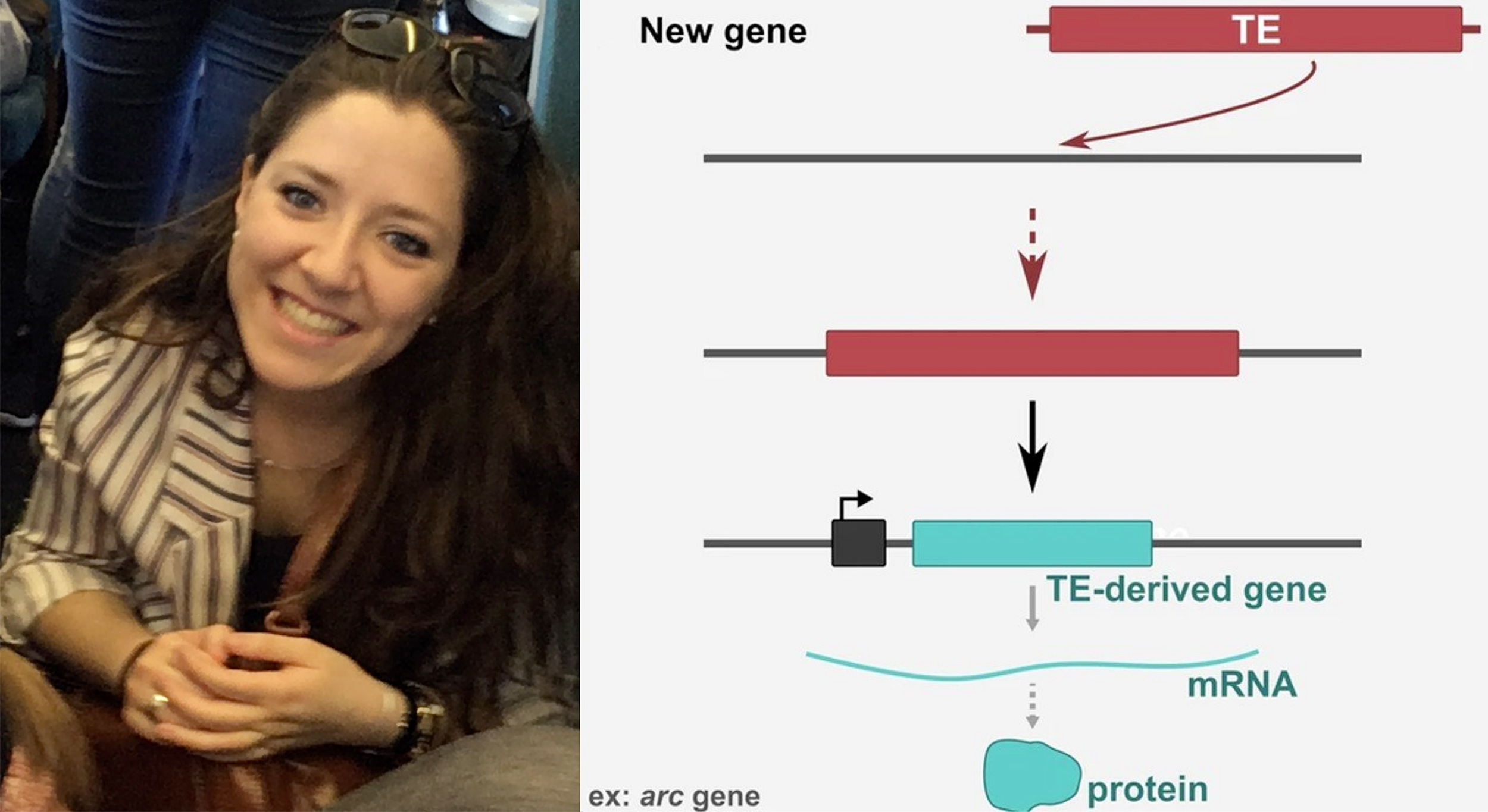Thesis defense: Ema Etchegaray
| When |
Jun 09, 2022 01:30
to
Jun 10, 2022 05:30 |
|---|---|
| Where | Salle des thèse, site Monod, ENS de Lyon |
| Contact Name | Ema Etchegaray |
| Add event to calendar |
|

On june 9th, Ema Etchegaray of the team of Jean-Nicolas Volff will support his thesis entitled:
"Etude évolutive et fonctionnelle de gènes dérivés de transposons Harbinger"
Abstract:
New gene formation is one of the major sources of evolutionary innovations for organisms. Beyond their mutational effects, transposable elements can be source of new genes.
During my thesis, I have studied Harbinger DNA transposons, which I have characterized in teleost fish genomes. Moreover, I have identified four new genes derived from Harbinger transposons in vertebrates by bioinformatical screening. Three of them were formed at the base of jawed vertebrates around 500 million years ago, and another at the base of sarcopterygians around 430 million years ago. Using the zebrafish model, we have observed that these genes are expressed during early development and in adult tissues, with a co-expression in male brain. They are also activated in human brain, particularlyduring fetal development. In order to study Harbinger-derived genes function, their inactivation was performed using CRISPR/Cas9 and morpholino antisense oligonucleotide techniques. The inactivation of MSANTD2 gene, which has been associated with neurodevelopmental diseases such as autism spectrum disorder and schizophrenia, produced embryos with delayed development as well as tail and nervous system malformations, specifically with brain ventricles and neuronal pattern defects. Thus, this thesis has highlighted the recurrent and concomitant molecular domestications of Harbinger transposons, which have led to a new gene family in vertebrates. The study of one its member, MSANTD2, contributes to a better understanding of genetic innovations having driven the evolution of the nervous system in vertebrates.


